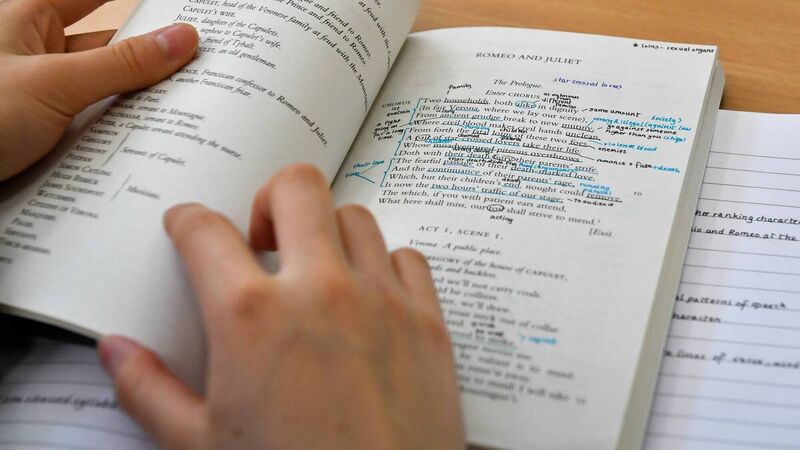Primary students spent just two hours per day on studies when home-schooled

A large majority of students felt they learned less at home, an NUIG study found. File Picture.
Most children at both primary and secondary level said they learned less at home during the period when schools were closed earlier this year, and parents seemed in broad agreement that home-schooling didn't work.
The findings are contained in a major new study by researchers in the School of Education in NUI Galway which features input from 2,733 parents, 896 primary school-aged children, and 293 secondary school students.
It found on average, students reportedly spent between 2.2 hours (primary students) and 3.6 hours (second-level students) per day engaged in ‘schooling at home’ activities and that many students and parents experienced increased levels of stress and anxiety.
According to the report: "A small majority of primary (52%) and a large majority of second-level students (73%) felt that they had learnt less at home than at school. In addition, a very large majority of parents (82% of parents of a child in primary school and 71% of parents of a child in second-level school) reported that their children’s interest in ‘schooling at home’ had either “decreased a little” or “decreased a lot” over the period of the school buildings closures. This was supported by the reports of the second-level students themselves, with the majority (67%) indicating decreases in interest levels over time."
While two-thirds of primary level students said they "sometimes did and sometimes did not enjoy [home-schooling]", second-level students were split: 44% reporting variable enjoyment, and 40% reporting that they “mostly did not enjoy it”.
Primary students enjoyed the extra-curricular aspects and spending more time with family, whereas second level students "enjoyed the freedom of sleeping later in the morning, following their own schedule, determining how long to spend on particular subjects, and having time for extracurricular activities in a more relaxed home environment".
For parents, home-schooling was stressful and tiring.
"Working parents and/or parents with several children, with no childcare, found juggling multiple learning levels and work-home-children responsibilities exhausting, 'impossible' and unsustainable," the report said.
Almost three-quarters of both primary and second-level parents reported that the child’s mother/female guardian took primary responsibility for supporting ‘schooling at home’, while approximately a quarter of parents said they were “dissatisfied” or “very dissatisfied” with the levels of support available from schools, "highlighting a lack of communication, engagement or support from schools and/or teachers, and emphasising the need for both live daily classes (rather than an email with a list of work for the week), and meaningful feedback on completed work."
Parents of children with special education needs were as or even more likely to feel this way.
Parents were generally positive about the return to school in September but had concerns, including children being behind academically. Another worry for those at second level was children potentially being exposed to Covid-19 (reported by 38%).





